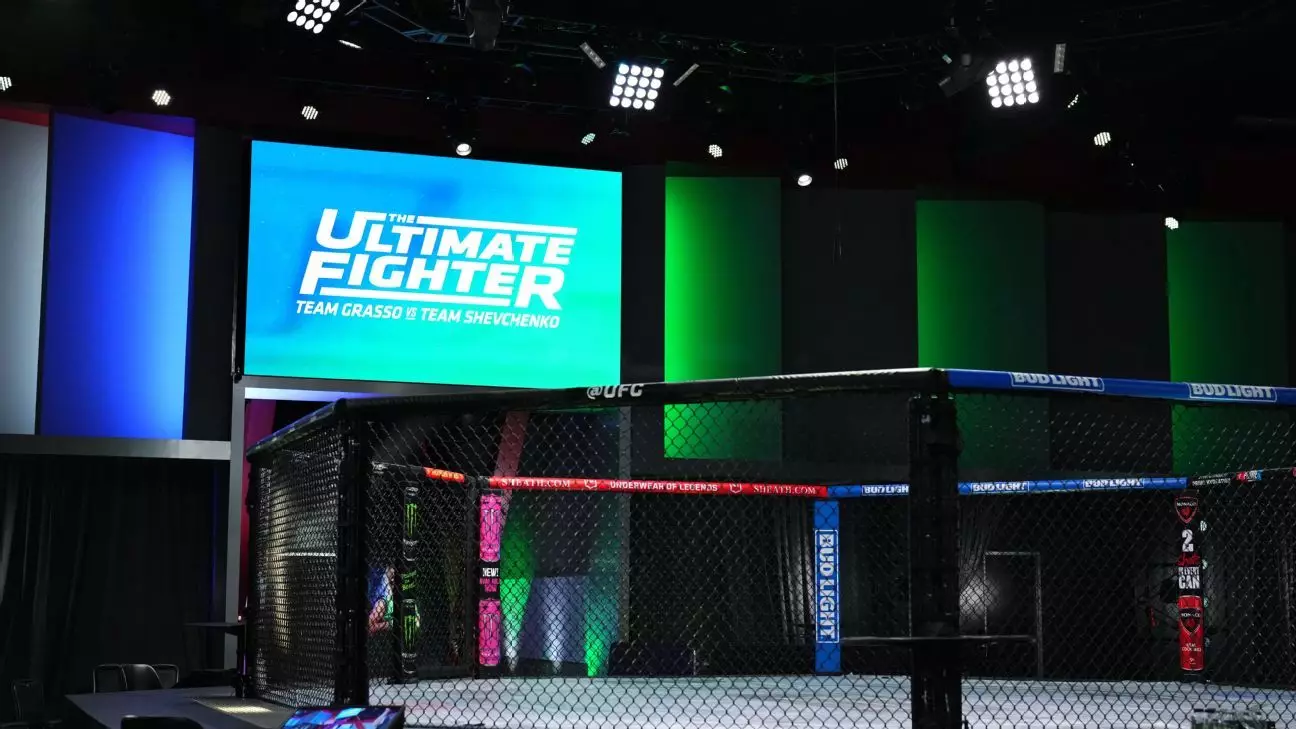The return of “The Ultimate Fighter” (TUF) for its 33rd season marks a fascinating pivot in the show’s approach to coaching and mentorship. Traditionally, the program has functioned as an incubator for rising talent, featuring active fighters who are still in the heat of competition. However, this season promises a refreshing twist: the coaches are Hall of Famers—Daniel Cormier and Chael Sonnen—both of whom have stepped away from active fighting. This divergence from the norm not only reflects a shift in how the sport perceives mentorship but also presents a unique opportunity for budding fighters who aspire to climb the ranks of the UFC.
The decision to enlist legendary fighters as mentors is a double-edged sword. On one hand, the vast experience and knowledge that Cormier and Sonnen bring can provide invaluable insights that could shape the next generation of champions; their storied careers and understanding of the sport are irreplaceable. On the other hand, there arises a question: can retired athletes still resonate with contemporary fighters who face a markedly different competitive landscape? This juxtaposition ignites an intriguing dialogue about the role of experience versus active participation in coaching effectiveness.
Champions Born from the Show
TUF has played an instrumental role in shaping the careers of countless fighters. The pedigree of champions birthed from this show is impressive, with names such as Kamaru Usman, Rose Namajunas, and TJ Dillashaw marking their territory among the elite. Each season unfolds like a dramatic narrative filled with tension, rivalry, and the relentless pursuit of glory. However, the traditional climactic build-up between active coaches—where emotions flare and tension boils—may be tempered this season. Cormier and Sonnen’s established legacies might cultivate a different kind of dynamic, one rooted in respect rather than rivalry.
It’s essential to consider that the show’s purpose extends beyond simply being a platform for fighters to gain exposure; it has evolved into a cultural phenomenon within MMA. The palpable intensity emanating from interactions between active coaches could be substituted with a more knowledgeable approach focused on skill development and strategy. It also raises the prospect of how audiences will respond to a shift from visceral battles of ego to intellectual exchanges of technique.
A Unique Competitive Landscape
This season’s focus will be on the welterweight and men’s flyweight divisions, showcasing some tremendous talent. Given the rigorous training environments these fighters have emerged from, including training alongside renowned champions, the competition promises to be fierce. Notable records highlight the caliber of participants involved—many of whom have recent accolades from organizations like the LFA and Bellator. Yet, one can’t help but wonder how the coaching styles of Cormier and Sonnen will mesh with the aspirations of fighters who are yet to make their mark.
Training under different methodologies instilled by such legendary fighters has the potential to unveil techniques and tactics not commonly utilized in today’s fast-paced UFC environment. The impact of personalized mentorship tailored to the fighters’ unique strengths and weaknesses cannot be understated. Cormier’s grappling prowess and Sonnen’s striking abilities may provide a dual approach, fostering well-rounded fighters capable of handling a variety of in-cage scenarios.
The Modern Reality of Fighter Relationships
As MMA has matured, so too have the relationships between fighters and their coaches. In a sport where every detail counts, the synergy created in the training camp can significantly impact a fighter’s performance. By leveraging Cormier and Sonnen’s authority as mentors, newcomers may find themselves navigating a blend of rigid technique and flexible modern adaptation. Moreover, the mentally-charged assumptions surrounding mentorship and training methods may inhibit traditional ideations of hierarchy that longer-tenured mentors typically enjoy.
The unique positioning of these Hall of Famers allows them to foster not only fight technique but also to impart mental fortitude—something that is often overlooked in intense competitions. The psychological aspect of fighting is complex, and having coaches who understand the weight of high-stakes moments can be just as pivotal as physical preparation. As Season 33 unfolds, the fusion of old-school wisdom and new-age strategies is poised to redefine expectations for both coaches and fighters alike.
With each fight echoing the legacies of its esteemed coaches, this season of “The Ultimate Fighter” holds the promise of elevating the competition while shifting the very framework of mentorship in MMA. The journey ahead is not merely a contest of skill but an exploration of what it means to train, learn, and grow in a sport that continues to diversify and challenge its very foundations.

